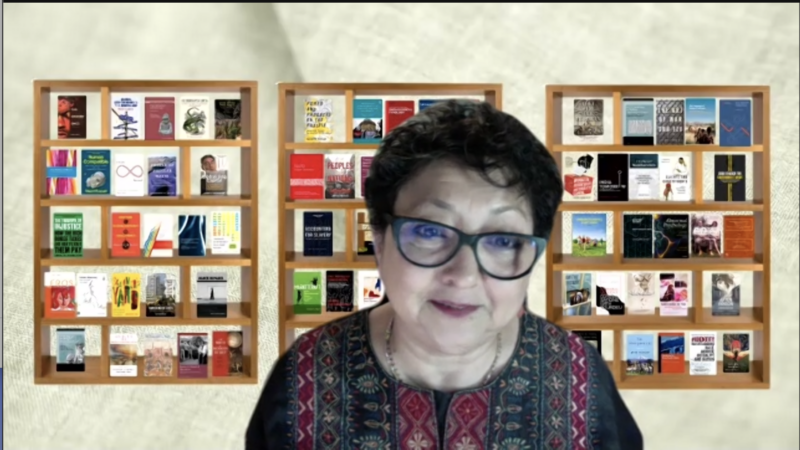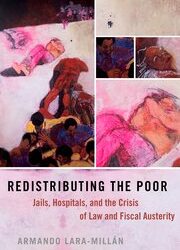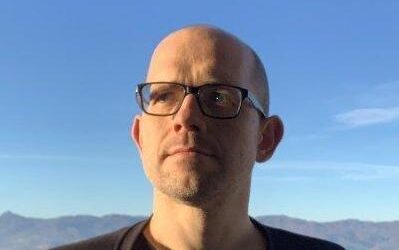On April 9, faculty members and graduate students from across the UC Berkeley Division of Social Sciences joined together online for the 2021 Social Sciences Fest and Matrix Open House, a celebration of the accomplishments of the division and a review of Matrix’s activities from the prior year. Traditionally held annually, this was the first Social Sciences Fest in two years, as the event was cancelled in 2020 due to the pandemic.

The event was hosted by Raka Ray, Dean of the Division of Social Sciences, who sat before a virtual background displaying many of the books authored by UC Berkeley social scientists over the past two years. “As we approach the end of this academic year, marked by so much loss, anxiety and adjustment, this remarkable division has poured its heart and soul into educating students, looking after their needs, contributing to campus and the profession, and producing excellent research and winning awards, all while working from home, often managing work and home life with home-schooled children,” Ray said. “We are under-staffed, under-resourced and overworked to be sure, but still we persist.”
Ray applauded a few of the division’s many accomplishments from the past year, including high U.S. News and World Report rankings (including top rankings for the Departments of History, Psychology and Sociology), as well as UC Berkeley’s continued influence in the world, particularly as multiple faculty (including Janet Yellen and Danny Yagan) now hold positions at the highest levels of the Biden administration. She noted, for example, an article in The American Prospect that described the influence of the “Berkeley School of Economics” in elevating inequality as a major focus of government policy. Among the other accomplishments Ray cited:
- The African American Studies Department received a multi-million dollar grant from the Mellon Foundation for the Black Collaboratory initiative.
- Professors Alison Gopnik (Psychology) and Raul Coronado (Ethnic Studies) received Guggenheim fellowships.
- Ted Miguel (Economics) and Dacher Keltner (Psychology) were elected to the American Academy of Arts and Sciences.
- Historians Stephanie Jones-Rogers, Elena Schneider, and Caitlin Rosenthal won major prizes for their first books.
- Khatharya Um, Center for Research on Social Change faculty affiliate and Associate Professor of Ethnic Studies, received the Chancellor’s Award for Advancing Institutional Excellence and Equity.
The Division is also preparing to launch a new initiative entitled Toward a Just Social Science, which aims to help create a more inclusive social science that is oriented toward social justice. “We have a new website, and a strong development team ready and willing to work with you to help raise funds for core initiatives and projects,” Ray said.
Throughout the event, Ray introduced new faculty members, who were given an opportunity to introduce themselves and provide an overview of their scholarship. For example, Hannah Sande, Assistant Professor of Linguistics, provided an overview of her work documenting language in West Africa, focused on “word building that doesn’t involve adding affixes, but instead involves tonal changes to roots, or changing a vowel in a root to change the meaning.”
And Brandi Summers, Assistant Professor of Geography and Global & Metropolitan Studies, gave a summary of her work on Black geographies, urban geography, racial aesthetics, and related fields. Her first book, Black in Place: The Spatial Aesthetics of Race in a Post-Chocolate City (featured in an October 2020 Matrix event), focused on Washington D.C., and now she is working on a new book about Oakland. “Ultimately, I’m looking at Oakland as a Black city,” she said. “I’m really engaging in how people are looking at it as a political location for resistance and thinking about reclamation.”
Matrix Year in Review
As part of the “Matrix Open House” portion of the event, Marion Fourcade, Director of Social Science Matrix, introduced Matrix and spoke about how much she is looking forward to returning to our space at the top of the Social Sciences Building.
“Matrix is a concept,” Fourcade explained. “Matrix is a physical realization of the idea that intellectual progress in the social sciences and in society more broadly depends on the cross-disciplinary fertilization of knowledge, methods, and perspectives. The space was actually conceived to catalyze such interactions. So you bump into people you don’t often cross paths with: colleagues and students from other disciplines, non-academics who enjoy coming to our lecture series, and famous out-of-town guests who are giving an intimate presentation.”
Fourcade invited the attendees of the event to sign up for our events and visit Matrix on campus as soon as possible. “You can look forward to a time when we can resume in-person activities, and in-person academic lives,” Fourcade said. “We have missed the space a lot this year, but we’ve missed the people who normally populate it even more.”
Social Sciences Divisional Awards: Distinguished Service Awards
As a highlight of the Social Sciences Fest, Dean Ray presented Divisional Distinguished Teaching and Service Awards for the past year.
Joan Kask
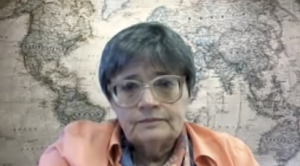
The first service award was given to Joan Kask, Administrative Director in the Interdisciplinary Social Sciences Program (ISSP). “As her nominating letter writes, her institutional knowledge, attention to detail, and responsiveness are her trademarks,” Ray said. “Joan provides magic in ensuring smooth functioning at the time of scarce resources and unprecedented enrollment growth. Her prescient budgeting and planning are fundamental to the success of our expanding programs…. Joan Kask is a Berkeley treasure who works much harder than anyone should, and the quality of her work is beyond what anyone would expect.”
“None of us works in a vacuum, no matter how much it may have felt like that during this year of isolation,” Kask responded, while accepting the award. “This award is for all my peers who’ve worked so hard and with such dedication. I’ve been really fortunate in my more than 35 years on campus and my four different jobs that I’ve held to work with many, many wonderful people. The group of colleagues I currently work with… are all among the most interesting, knowledgeable, hardworking, kind, sharing, and just awesome people I’ve ever been associated with.”
Kim Voss
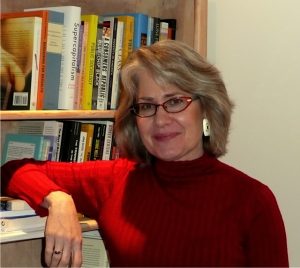
The next honoree for a Distinguished Service Award was Professor Kim Voss, who served as interim dean of the Division of Social Sciences between 2019-2020. “The dedication, intelligence, passion, vision, and roll up-your-sleeves-and-never-give-up perseverance that she puts into each and every service role she performs is both awesome and inspirational,” Ray said. “Kim’s intense work ethic and dedicated participation in faculty governance has yielded collective benefits for her home department of Sociology (of which she was the first woman Chair), the College of Letters & Science, several ORUs and interdisciplinary research initiatives, the Graduate Division, the Academic Senate, the campus, and, through her scholarship and public outreach, to communities and organizations beyond campus as well.”
“It’s really impossible to win an award like this without the help of many,” Voss said, as she received the award. “My reason for becoming an academic in the first place was that I believed a PhD was the best way to figure out how to make social change…. I was attracted to Berkeley because I wanted my research to have an impact beyond the academy. I knew that doing such work was valued at Berkeley in a way that, at the time, it was not valued by many other top sociology departments. Today, I still want my research to be impactful beyond the academy. However, over time, I have come to see that one of the most significant ways that I can personally help make the world a better place is to refuse to cede the best education and research to the private sphere. Instead, it has become deeply meaningful to me to make Berkeley the university that provides the world’s best education, both to the children of janitors and home health care workers, and to children for more elite families. It has also become profoundly important to me to help ensure that Berkeley remains the place where scholars produce the research needed to create a more just, equal, and sustainable world.”
Social Sciences Divisional Awards: Distinguished Teaching Awards
Ozlem Ayduk
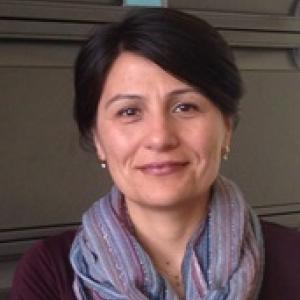
The first faculty member honored with a Distinguished Teaching Award at this year’s Social Sciences Fest was Ozlem Ayduk, Professor of Psychology. “Ozlem is a beloved mentor because she is able to combine support and care for her mentees at the same time that she is able to provide honest feedback to them, both positive and negative, and have the students emerge wanting to become better scientists,” Ray said. “In essence, Ozlem’s mentoring relationships are grounded in mutual trust, respect, and genuine caring. In the time of the pandemic, Ozlem carefully and deliberately re-engineered the course she had been teaching for over 15 years with the well-being of her students in mind—not only their educational well-being, but also their psychological well-being. This award then is in special recognition of the exceptional time, attention, and effort she put into her teaching during the Fall 2020 term, truly going over and above to the benefit of her students.”
“When I first started teaching at Berkeley 19 years ago, the possibility of my receiving this award (or any teaching award for that matter) looked like a long shot,” said Ayduk. “I wasn’t a bad teacher, I was perfectly a fine teacher. But given the extraordinary number of gifted teachers we have on this campus, I just didn’t see myself as a candidate that had that special hump. Therefore having been judged worthy of this award means a lot. It’s both gratifying and verifying to know that I have become a better teacher with effort, time, and experience. And I thank members of the selection committee in acknowledging that and putting their trust in me.”
Keith Feldman
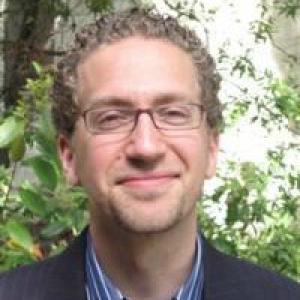
The second Distinguished Teaching Award was given to Keith Feldman, Associate Professor of Comparative Ethnic Studies. “He has been a dynamic leader in curricular innovation, and is an early and effective contributor to numerous campus-wide teaching initiatives,” Ray said. “He’s an incredibly vital lecturer, whom students describe as rigorous, well-prepared, responsive, and dedicated — someone who encourages student participation and is passionate about his subjects. His unwavering ability to balance accessibility, fairness, and rigor make him an exceptional model for others to follow.”
“Teaching is really quite central to my sense of self as a scholar and a member of this campus community,” Feldman said. “So it’s really wonderful to receive this particular recognition. Teaching, in so many ways, is enlivening precisely because of the kind of ordinary practice of exchange that it makes possible, of sitting and thinking and reflecting together, taking risks in a shared space and time. There’s something about the rhythm and ritual of the day, the week, the unit, the semester, returning to a shared space with one another over time. Receiving this award in this of all years has been especially moving, in no small part because of how disruptive the last 13 months have been to all of these rituals and rhythms. I cannot wait to once again sit around a table and think together with Berkeley students and not have to worry about whether my internet is stable or what’s happening in the chat. I’m also incredibly grateful for all the remarkable work that’s gone on at this university to allow us to keep teaching.”
